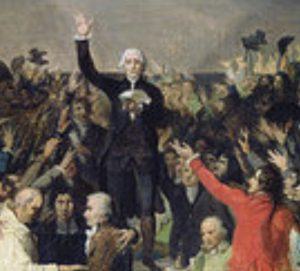Shadi Hamid in American Affairs:
 If there were a tagline for today’s populist moment, it would probably be something like “It’s not the economy, stupid.” Economic factors matter, but they are far from decisive in understanding why populists, especially right-wing populists, have solidified their position as the second largest or even largest parties in many Western democracies.
If there were a tagline for today’s populist moment, it would probably be something like “It’s not the economy, stupid.” Economic factors matter, but they are far from decisive in understanding why populists, especially right-wing populists, have solidified their position as the second largest or even largest parties in many Western democracies.
In 2012—in the aftermath of the financial crisis—40 percent of Americans cited the economy as their top concern, according to a Reuters survey. By 2017, that number had dropped to 10 percent.1 Particularly among Republicans, immigration, identity (measured by demography), and culture wars have come to dominate. Meanwhile, according to a 2018 YouGov survey, immigration was the number one concern for voters in seven European countries, closely followed by terrorism.2 Not health care, unemployment, the European Union, poverty, the environment, or anything else. Immigration and terrorism have one thing in common: a fear of Islam and Muslims. In the populist universe, Muslims are a “metaphor” for other, bigger things—demography, culture, and national identity.3
The political scientist Eric Kaufmann, whose recent study drew on various data sources, found a 78 percent correlation “between projected Muslim share [of the population] in 2030, a measure of both the level and rate of change of the Muslim population, and the best national result each country’s populist right has attained.”4 “If we stick to data,” he writes, “the answer is crystal clear. Demography and culture, not economic and political developments, hold the key to understanding the populist moment.”5 Even with provisos about the difference between correlation and causation, the overall picture is striking.
More here.
